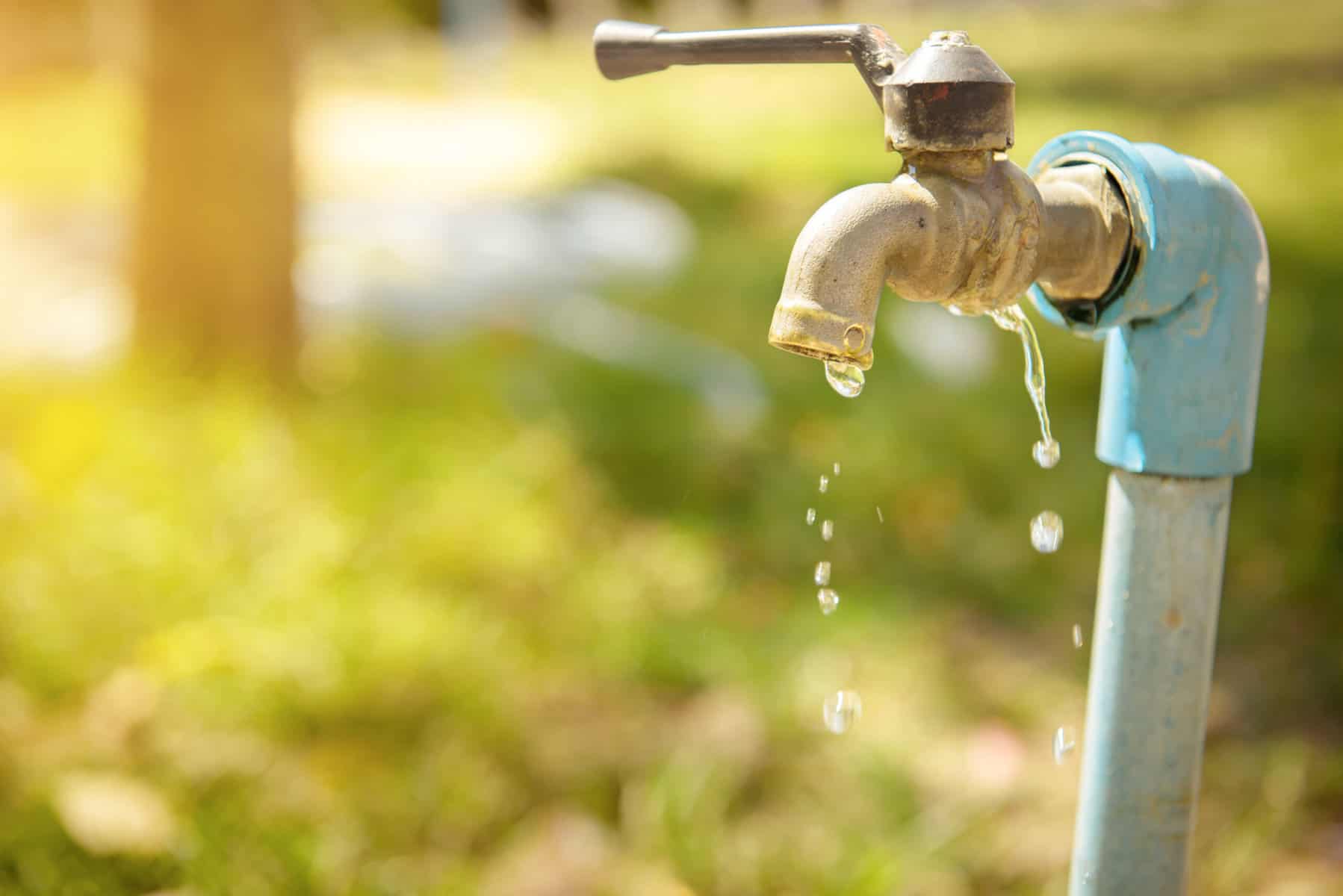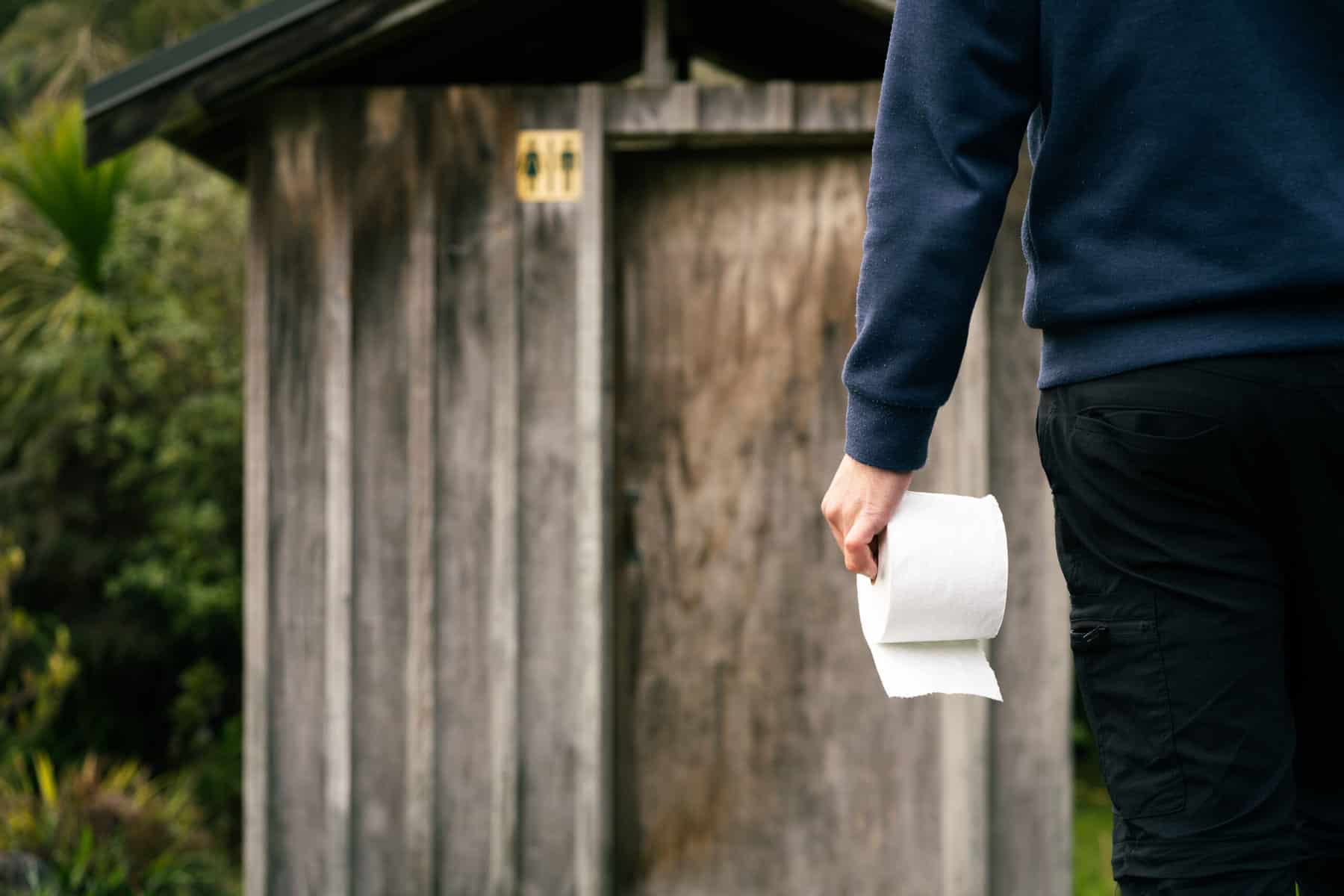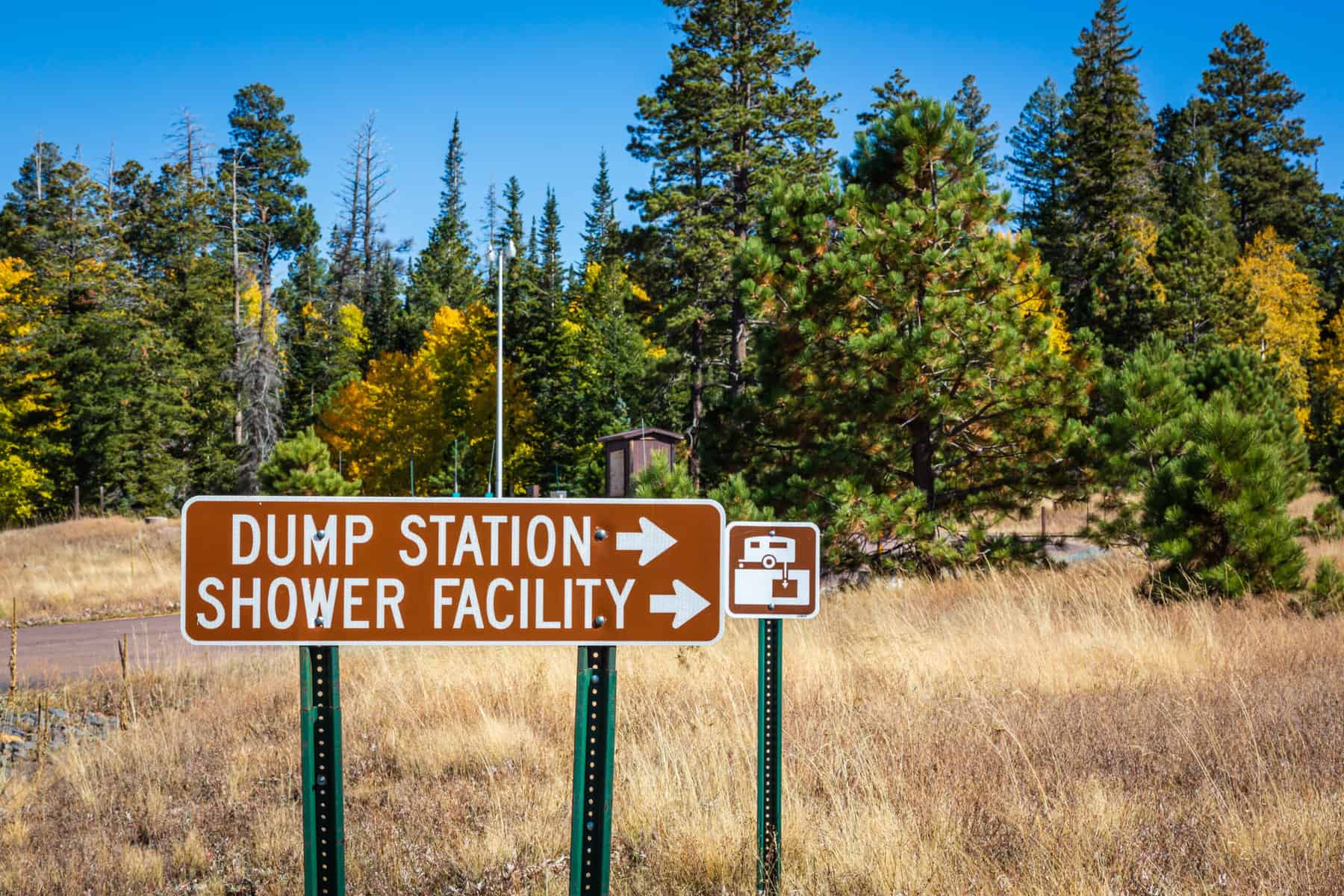The practice of RV gray water dumping onto the ground goes way back. In the early days of homes on wheels, it was common for campers to drain gray water onto the ground without giving it a second thought. But in our polluted world, is draining RV gray water tanks somewhere other than into a septic system still OK to do? That depends on who you ask, and where you camp. Let’s look at the laws, practicalities, and RVer feelings about this all-too-common camping practice.
The Benefits of Reusing Gray Water
There’s no doubt that in our climate change era of severe drought across the nation, reusing gray water is more necessary than ever before. For decades, water experts have used gray water to quench thirsty landscaping. And in the coming years, more states and municipalities will turn reclaimed water into drinking water. In many places, sanitation laws will allow dumping of gray water from washing machines.
Repurposing gray water is not a new thing. Farmers everywhere have dumped gray water onto their fields for eons. Campers of bygone eras lacked holding tanks, which forced RVers of those times to dump sink and bath wash water onto the ground. After emptying their grey water tank as far from their campsite as possible, few thought twice about the practice. After all, when you’re tent camping you do the same, right?
In the distant era it was pretty common to dump the gray line, especially with popups that were not waste tank equipped. I used a 5 gallon bucket at the outlet then took it into the woods. Everything that had food on it was well wiped down with no wastes being dumped. Black – had a Porta Potti that got dumped at a bathroom or dump station when necessary. Then we ‘graduated’ to a wheeled blue tank.
Is it ever excusable to dump grey tanks on ground?
@IC2, iRV2 Forums Member
Common thinking was that RV grey water couldn’t hurt plants, and as long as black water was not dumped, letting gray water loose was a good thing for the earth. But was it, really?
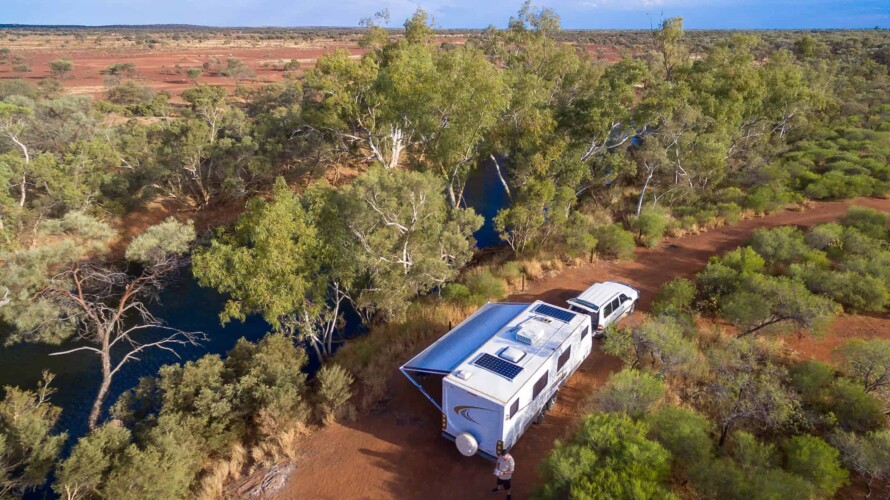
The Problem with Dumping RV Kitchen and Bath Water on the Ground
Waste water experts now understand the harmful effects of dumping gray water without treating it . If water has made any contact with other organic or inorganic matter it’s classified as raw sewage, according to experts like Frank Graff from UNC-TV:
What IS Raw Sewage?
Frank Graff, UNC-TV
First, what is meant by “raw sewage?” Essentially, raw sewage is wastewater that has not been treated. It has two sources. There’s sewage from kitchen, bathrooms and even laundries. But there is also more solid waste from cooking, dishwashing, toilets, showers and sinks.
RV gray water is not harmless. If it comes into contact with other people or pets at recreational areas, it can be harmful to them. Gray water carries food particles, bacteria, pathogens, and viruses that can cause illness and disease. Even our best attempts at cleaning dinner plates before rinsing them in the RV kitchen sink don’t eliminate that risk.
Untreated water that comes from homes, RVs, and tent campers is raw sewage, period.
When Raw Sewage Becomes “Gray Water”
Humanity now understands that dumping raw untreated sewer water is harmful. This is general knowledge. We also know that dirty water from our bathroom and kitchen can be treated to make it unharmful, and helpful!
Properly treating our household water (except for toilet waste water) allows us to recycle H20 into grey water. We can water non-edible plants, lawns, and even fill ponds with gray water.
But how do you filter raw sewage to make it gray water?
A graywater system filters the water using a highly effective multi-stage filtration system to remove lint, hair and impurities. Instead of traveling through your septic system, the filtered graywater is diverted to flower beds and gardens, creating an efficient irrigation system.
Graywater Filtration & Recycling Systems: What is it?
These systems generally consist of a unit that is installed outside your home and is connected to your household appliances as well as your home’s irrigation system. Each time you shower or use your appliances, the unit collects and filters the water, removing impurities without the use of chemicals.
The filtered water is then delivered via your irrigation system to wherever you need it, including flowerbeds, gardens and landscaping areas. Instead of inefficient graywater disposal, you benefit from recycling what would otherwise be nothing more than wastewater.
The Waterwise Group
Wiping Dinner Plates and Using Biodegradable Soap is Not Enough
As you can see above, waste water is only considered gray water after being properly treated with a filtration system. This is the elephant in the room among RVers who admit to occasional RV gray water dumping, which often happens on public lands.
It makes sense that so many RVers like you and me always assumed thought that what ends up in our holding tanks is actually gray water. After all, RV manufacturers even put stickers on the side of our rigs to identify gray water tanks versus black tanks.
We make it a point to always wipe down our dishes, pots and pans, and utensils before washing them. This eliminates 95% of the food debris in the gray tank. Since we started doing this we never have any odor from the gray water.
Is it ever excusable to dump grey tanks on ground?
We have once or twice dumped our gray tank in remote areas, but I would never do it in a developed campground.
@baraff, iRV2 Forums Member
Many RVers make valiant efforts to do the right thing. Let’s applaud them for even trying to dump gray water responsibly. Many campers simply do not. But water quality experts will say that cleaning dirty plates with paper towels is just not enough to treat raw RV gray water.
When you dig into the facts about what is RV gray water, you learn that true gray water is treated before it ever leaves a building. Unless your RV has a waste water treatment system, you are technically dumping raw sewage.
Inconsistent Federal and State Laws About Dumping RV Gray Water Confuse RVers
The definition of “gray water,” and laws about dumping it are different from state-to-state. Even government agencies like the Bureau of Land Management and the US Forest Service (USFS) don’t always agree RV gray water dumping laws and rules.
For instance, many RVers who let loose on their gray tanks when boondocking, justify doing it because of official docs, like this one from the USFS:
GRAY WATER
Dispersed Camping, USFS
Is old dishwater, which should not be dumped just anywhere. To wash yourself or your dishes, carry water 200 feet away from streams or lakes and use small amounts of biodegradable soap. Scatter strained dishwater.
In the backcountry be sure to dump gray water away from any fresh water sources and use biodegradable soap. Campgrounds usually have designated areas for dumping gray water.
Here’s the problem with this policy: it doesn’t say how much gray water is OK to dump. It could be one gallon or one hundred based on the vague description. If we are honest with ourselves, we will admit that when an RVer dumps gray water onto the ground, it’s going to be more than what a tent camper dumps.
Gray water use laws vary by state.
Colorado gray water laws are so restrictive that it’s pretty much illegal to dump or recycle gray water no matter how much treatment has occurred.
And in Oregon, officials say that gray water is classified as sewage. “Treatment and reuse of gray water requires appropriate DEQ permits,” says the Well Water Program at Oregon State University. The government regulates it according to the state’s wastewater treatment system regulations. And if you want to dump it, you’ll need a permit to install a Greywater Reuse and Disposal System.
California gray water laws are comprehensive and allow gray water recycling. But laws about doing it are very restrictive. “The system must not, among other things, “have pooling graywater or runoff,” or “make graywater accessible to people or pets (such as in an open tub).”
Which States Allow Gray Water to Be Used?
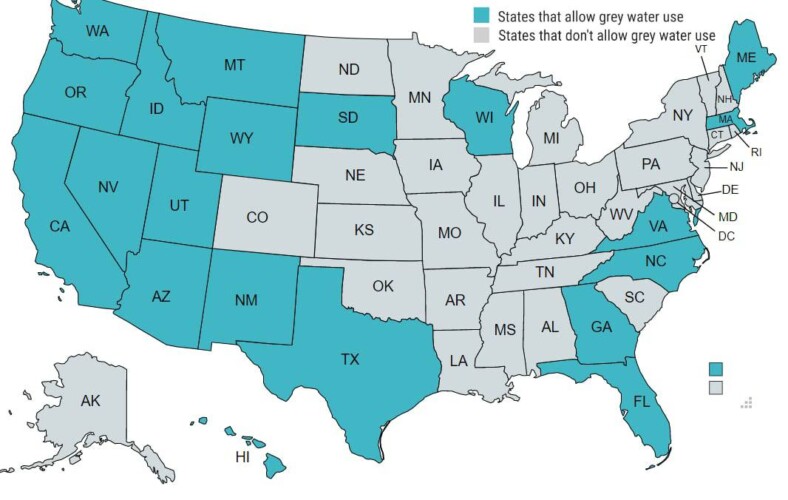
In Arizona, officials actively encourage gray water recycling. They have the most liberal gray water use laws in the nation. But this “Using Arizona Greywater at Home” brochure points out, they don’t want you to just dump gray water on the ground. You must be a property owner, and follow best practices like:
- Gray water must be used on the site where it is generated. The area of use cannot be accessible by the public.
- First and foremost, avoid human contact with gray water, or soil irrigated with gray water.
- You may use gray water for household gardening, composting, and lawn and landscape irrigation, but use it in a way that it does not run off your own property.
- Use only flood or drip irrigation to water lawns and landscaping. Spraying gray water is prohibited.
When an RV dump station trip is just too inconvenient, there’s little that will stop someone from taking their dump hose out doing the deed. Ultimately, whether or not an RVer gets cited for dumping RV gray water depends on where they do it, and who knows that it happened.
You can guarantee that if someone dumps gray water in a national park, they will get cited. But in many other dispersed camping locations on BLM land, and at some campgrounds, local officials look the other way. They are too busy, or do not care. Or, like most people, don’t know gray water FAQs.
Two Questions RVers Should Ask When Tempted to Dump RV Gray Water
Each year, more free camping areas and public campgrounds get closed or restricted because of unsanitary practices by those who enjoy the land. If we RVers care about preserving dispersed camping areas for future use, there are two big outdoor ethics questions that we all need to ask ourselves when we are tempted to dump our gray water onto the ground:
“Am I OK dumping my untreated sewer water, regardless of the risk to the planet and people?“
The second question all RVers need to ask is:
“If I dump this water on the ground, would I want to be the RVer who camps on top of it tomorrow?”
We might think we are “remote” when we open up that holding tank. But in today’s crowded camping world, no RVer is protected from camping on top of someone else’s raw sewage.

